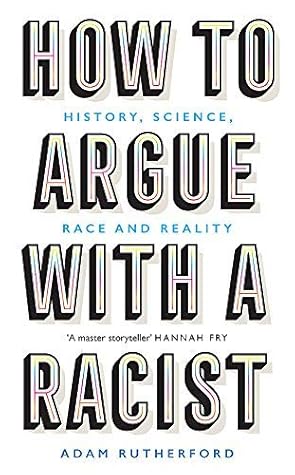More on this book
Community
Kindle Notes & Highlights
I did not choose UCL because of its peculiar history, though I was enrolled in the Galton Laboratory, which was once called the Galton Eugenics Laboratory, and was taught by the Galton Professor in the Galton Lecture Theatre, all named after Francis Galton – a man whose intellectual legacy includes weather maps, a phalanx of essential statistical techniques, forensic fingerprints and the scientific concept of eugenics, as well as the word itself. Galton died in 1911, and the men who followed him at my alma mater were similarly great scientists: the statistician Karl Pearson, the mathematical
...more
we desire membership to clans, tribes and families, and while these narratives can be drawn from geography, nationhood and history, ancestral genetics says very little about them.
We crave simple stories to make sense of our identities. This desire is at odds with the reality of human variation, evolution and history, which are messy and extremely complicated. But they are recorded in our genes.
Often, these discussions are hampered not just by inexpertise, but by the imprecision of language. Race is a very poorly defined term. Since the seventeenth century, attempts to categorise people into racial types has resulted in the number of races being anywhere between one and sixty-three. We talk casually of black people, or East Asians, or other categorisations of billions of people that primarily refer either to geographical landmasses or a handful of physical characteristics – none more so than pigmentation.
But as a result of ever more precise taxonomy in humans, none of the historical or colloquial usages of race tallies with what genetics tells us about human variation. As a result, we are prone to saying glib things such as ‘race doesn’t exist’, or ‘race is just a social construct’. While these sentiments may be well-intentioned, they can have the effect of undermining the scientifically more accurate way of expressing the complexities of human variation, and our clumsy attempts to classify ourselves or others. Race most certainly does exist because it is a social construct. What we must
...more
When we speak of nature and nurture, it is not useful or accurate to think of these two phenomena in opposition. Nature – meaning DNA – has never been versus nurture – meaning everything that isn’t DNA. Our genomes are the totality of our DNA, and that is where our genes are. Nurture – meaning the non-genetic environment – does not mean whether your parents cuddled you or ignored you as a child; it means every interaction between the universe and your cells, including how you were raised, but also everything from the orientation of you as foetus in utero, to the randomness of happenstance,
...more
Humans suffer universally from a syndrome that Richard Dawkins called the ‘tyranny of the discontinuous mind’. We yearn to categorise things and fail to recognise continuity. We strain to put things into discrete boxes, and define things by what they are rather than what they do. This is a problem in science, and one that relates to the Linnaean classification that biologists cling to.
Swift’s maxim that you cannot reason someone out of a position they did not reason themselves into.


